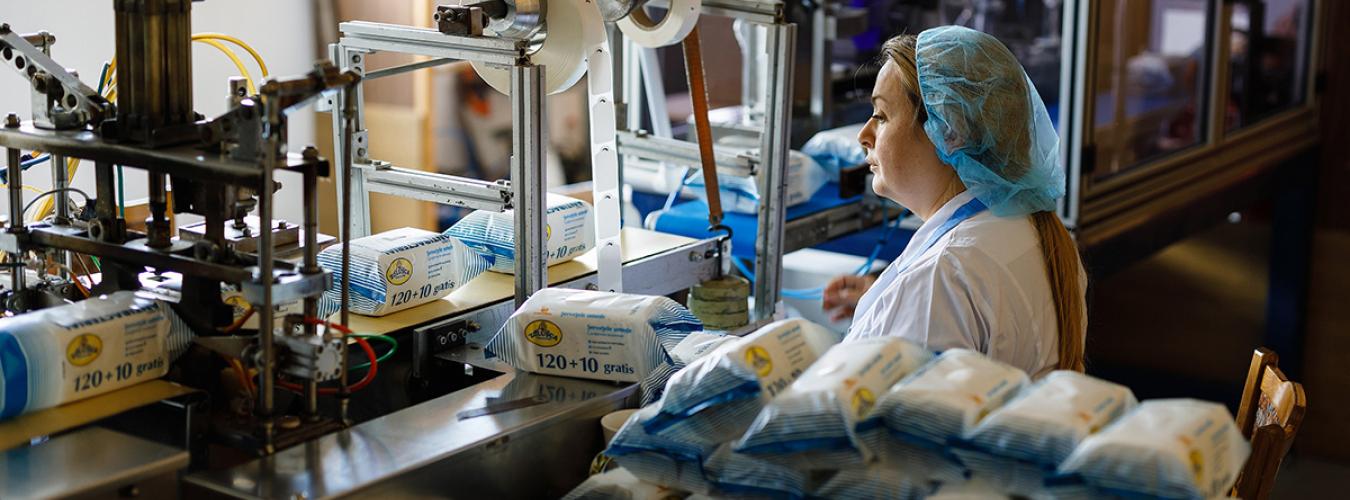Stop the pandemic: Safety and health at work can save lives
Recognizing the great challenge that governments, employers, workers and whole societies are facing worldwide to combat the COVID-19 pandemic, the World Day for Safety and Health at Work will focus on addressing the outbreak of infectious diseases at work, in particular, on the COVID-19 pandemic.
Concern is growing over the continuing rise in COVID-19 infections in some parts of the world and the ability to sustain declining rates in others. Governments, employers, workers and their organizations face enormous challenges as they try to combat the COVID-19 pandemic and protect safety and health at work. Beyond the immediate crisis, there are also concerns about resuming activity in a manner that sustains progress made in suppressing transmission.
The World Day for Safety and Health at Work will aim to stimulate national tripartite dialogue on safety and health at work. The ILO is using this day to raise awareness on the adoption of safe practices in workplaces and the role that occupational safety and health (OSH) services play. It will also focus on the medium to long-term, including recovery and future preparedness, in particular, integrating measures into OSH management systems and policies at the national and enterprise levels.
Background
In 2003, the International Labour Organization (ILO), began to observe World Day in order to stress the prevention of accidents and diseases at work, capitalizing on the ILO's traditional strengths of tripartism and social dialogue.
This celebration is an integral part of the Global Strategy on Occupational Safety and Health of the ILO, as documented in the Conclusions of the International Labour Conference in June 2003. One of the main pillars of the Global Strategy is advocacy, the World Day for Safety and Health at Work is a significant tool to raise awareness of how to make work safe and healthy and of the need to raise the political profile of occupational safety and health.
28 April is also the International Commemoration Day for Dead and Injured Workers organized worldwide by the trade union movement since 1996.
Prevention of occupational accidents and diseases
The annual World Day for Safety and Health at Work on 28 April promotes the prevention of occupational accidents and diseases globally. It is an awareness-raising campaign intended to focus international attention on the magnitude of the problem and on how promoting and creating a safety and health culture can help reduce the number of work-related deaths and injuries.
Each of us is responsible for stopping deaths and injuries on the job. As governments we are responsible for providing the infrastructure — laws and services — necessary to ensure that workers remain employable and that enterprises flourish; this includes the development of a national policy and programme and a system of inspection to enforce compliance with occupational safety and health legislation and policy. As employers we are responsible for ensuring that the working environment is safe and healthy. As workers we are responsible to work safely and to protect ourselves and not to endanger others, to know our rights and to participate in the implementation of preventive measures.
Emerging risks at work
New and emerging occupational risks may be caused by technical innovation or by social or organizational change, such as:
- New technologies and production processes, e.g. nanotechnology, biotechnology
- New working conditions, e.g. higher workloads, work intensification from downsizing, poor conditions associated with migration for work, jobs in the informal economy
- Emerging forms of employment, e.g. self-employment, outsourcing, temporary contracts
They may be more widely recognized through better scientific understanding, e.g. the effects of ergonomic risks on musculoskeletal disorders.
They may be influenced by changes in perceptions about the importance of certain risk factors, e.g. the effects of psychosocial factors on work-related stress.
We have learned from past crisis that workplaces can be of vital importance to prevent and control outbreaks. Adequate safety and health measures at work can play a crucial role in containing the spread of the disease, while protecting workers and society at large. Governments, employers and workers all have a role to play in tackling COVID-19 crisis, and their collaboration is key.
Poster

Resources
International Labour Standards
- Workplace Stress: a collective challenge
- Report on safety and health in the use of chemicals at work
- Occupational safety and health
- Social security
- Social policy
Occupational Safety and Health
- Conventions and Recommendations
- Global strategy on occupational safety and health
- Codes of Practice
- Encyclopaedia of Occupational Health and Safety
- Plan of action (2010-2016) to achieve widespread ratification and effective implementation of the occupational safety and health instruments (Convention No. 155, its 2002 Protocol and Convention No. 187)
- Seoul Declaration on Safety and Health at Work
Green Jobs
- Skills for Green Jobs: A Global View
- Towards a Greener Economy: The Social Dimensions
- Promoting Safety and Health in a Green Economy
- Assessing Green Jobs Potential in Developing Countries: A Practitioner’s Guide
Prevention of Occupational Diseases
Related Links
International Labor Organization (ILO)
- World Day for Safety and Health at Work
- Improving the Safety and Health of Young Workers
- Toolbox for the collection and use of OSH data
- Safety and health at work
- Decent work
- Social security
- Working conditions
United Nations Environment Programme




